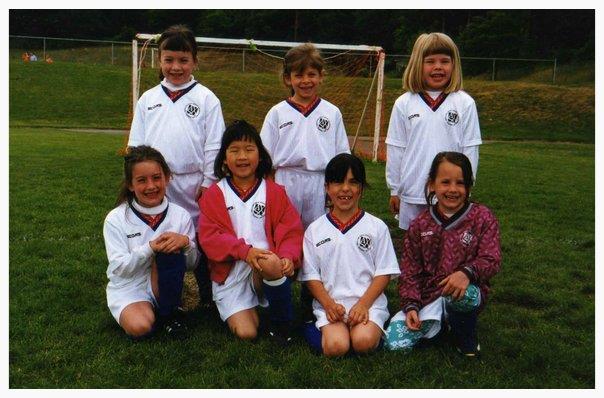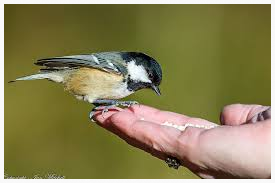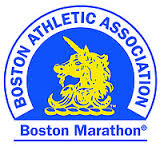The Language of Nothing
/Zip. Zero. Nada.
Every language in the world talks about nothing. Nothing can be found on tongues around the globe. So why do we make a big deal out of nothing? Because the absence of something is nothing to sneeze at. Zero makes a big impact.
Other English Words for Nothing:
- goose egg
- aught
- naught (or nought)
- nil
- null
- no
- none
- nix
- oh (or the letter O)
- zilch
- bupkis (or bupkas)
_thumb.jpg)
photo: fotolia.com
Numbers
In non-scientific discussions, Americans prefer saying “oh” over the technically correct form “zero.” This may be because it is shorter (one syllable instead of two), or it may be because the number zero looks like the letter O. If I hear someone say “zero” instead of “oh,” I assume s/he is a foreigner or an engineer.
Addresses: the mailing zip code for Allendale is 49401, pronounced four-nine-four-oh-one. A phone number I frequently call is 901-xxxx, nine-oh-one…. The street number of my church is 4010, pronounced four-oh-one-oh. (Some people might say forty-ten.)
Both Americans and Brits use “oh” when talking about the world’s most famous spy. James Bond is Agent 007, pronounced double-oh-seven.
The most common introductory classes at the university are Math 101 or English 101, pronounced one-oh-one.
Nothing in Sports
In sports, a player or a team can have zero success in a game. In American English, we pronounce the numerical concept of zero in a couple of ways.
Baseball
If the pitch count is 3-0 (three balls and no strikes), 2-0, or 1-0, the pitcher is “behind” the batter. Here, the proper pronunciation is three-and-oh, two-and-oh, or one-and-oh. Conversely, if the pitcher is “ahead of” the batter, the count is 0-2 (no balls and two strikes) or 0-1. Here, we say the count is oh-and-two or oh-and-one.
If a batter has a bad day and goes hitless, his plate appearances might be 0-4 (zero hits in four at-bats) and we say he is oh-for-four. In a hitless three-game series, he may be 0-12 (oh-for-twelve). If the series is played, say, in Chicago, a clever announcer may say the batter is oh-for-Chicago.
_thumb.png)
photo: AP/Elaine Thompson
In a no-hit shutout, where an entire baseball team goes hitless and scoreless, the scoreboard will show all zeroes. For the above photo, the announcer might remark that Los Angeles “put up nothing but goose eggs.”
American Football
If a quarterback misses five passes in a row, the announcer might say the QB is 0-5 (oh-for-five) on his last passes.
Basketball
A player who misses all seven free throws in a game (or all ten shots) is said to be “oh-for-seven from the line” (or “oh-for-ten from the field” ).
Tennis
A tennis score of 15-0, 30-0, and 40-0 are pronounced fifteen-love, thirty-love, and forty-love. From the mug below:
I played a tennis match and was goosegged. I lost 6-0, 6-0, 6-0.
_thumb.png)
photo: urbandictionary.com
Golf
A golfer with a zero handicap is called a scratch golfer.
All Team Sports
When talking about
win-loss records
, the number of wins is given first, using the word “and.” An undefeated team could be 9-0, pronounced nine-and-oh. A winless team would be 0-9, pronounced oh-and-nine.
In giving a final score , zero has several pronunciations. A final hockey or soccer score might be 2-0. You could say two-to-nothing, two-nothing, or two-zip. An American football team losing 21-0 was shut out twenty-one-(to-)nothing or twenty-one-zip. A British football team losing 1-0 is said to have lost one-nil.
_thumb.png)
photo: zazzle.com
Hunting
Shotgun shells have different sized pellets packed inside. The most commonly used gauge is 00, pronounced double-ought. Because “ought” is an old-fashioned word, many modern speakers mistake this expression and say double-odd.
Examples from Life
- Our team worked really hard to make our quarterly goal. Afterwards, my supervisor got a big raise, but the rest of us got diddly squat (zilch, zip, nada, bupkas).
- After all her hard work, nothing changed. She couldn’t believe her efforts were for naught.
- The sign below made me smile when I saw it in a local retail shop. I guess the clerks there will let you shop without bothering you. If you have a question, they assume you will ask.

photo: A.Heaadbloom
New vocabulary:
- nada = Spanish word for nothing
- zip, zilch, diddly squat = slang expressions for nothing
- goose egg = zero (the shape of an egg)
- nothing to sneeze at = not insignificant, worth paying attention to
- bupkas = nothing (from Yiddish), literally “goat droppings”
- the aughts = the decade following the 80s and 90s, 2000-2009
_thumb.png)
photo: stoners.com








































































